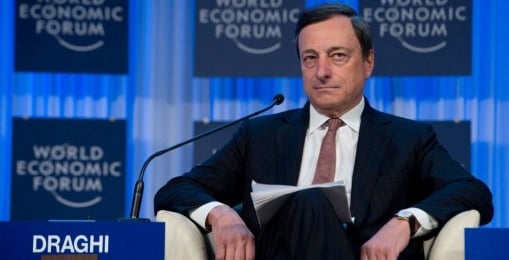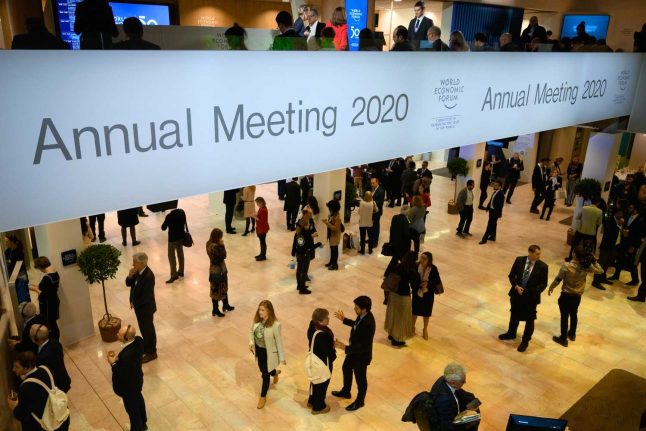Speaking to the world's top business and political leaders at the World Economic Forum, Mario Draghi also said that austerity measures being taken in crisis-hit countries were "unavoidable" despite the impact on growth.
"If one has to find a common denominator . . . for defining why 2012 is going to be remembered, I think one would say it's the year of the relaunching of the euro," Draghi said in his well-attended and hotly anticipated speech.
Draghi outlined three "extraordinary" steps taken by European leaders and institutions to battle the three-year sovereign debt crisis that has pitched the 17-nation bloc into recession.
Governments have pushed through structural reforms with "urgency" and these are "now bearing fruit," said the ECB boss.
European leaders had recognised structural flaws inherent in the single currency and were now pushing for greater integration.
And finally, his own institution had undertaken actions that broke the monetary policy mould, including providing one trillion euros ($1.33 trillion) in liquidity for banks.
The ECB also announced a programme to buy the bonds of debt-wracked countries which had proved "very helpful" in reducing the perception that the euro was on the point of collapse, Draghi said.
However, he said it was too early to declare the battle over.
"Are we satisfied for that?
"I think to say the least, the jury is still out.
"Because all in all, we haven't seen an equal momentum on the real side of the economy and that's where we will have to do much more."
Nevertheless, Draghi hailed what he called a period of "relative tranquility" on the financial markets.
"All the indices point to a substantial improvement of financial conditions," he said.
"It is a situation where you have what I called once positive contagion on the financial markets . . . but we don't see this being transmitted into the real economy yet."
He forecast that the euro area economy would "stabilize" at a "very low level of activity" this year, and predicted "a recovery in the second part of the year."
The European Central Bank has forecast the eurozone economy will contract by 0.3 percent this year but rebound to register GDP growth of 1.2 percent in 2014.
Draghi urged governments not to let up on the momentum of reforms just because the pressure from the markets had been reduced.
"We can have a positive development if national governments would persevere in their actions, both in fiscal consolidation but especially now in the field of structural reforms," he said.
Fiscal consolidation — or reducing debt and deficit mountains — was "unavoidable" he stressed, but he acknowledged that raising taxes and cutting
spending tended to result in slower economic growth.
Draghi concluded with a plea to the global elite not to underestimate the euro area economy, despite its woes.
Notwithstanding the strife in weaker euro countries like Spain and Greece, the average levels of indicators such as productivity or inflation put the euro area in line with some of the best economies in the world, he said.
"We tend to forget the strength of the euro area economy."



 Please whitelist us to continue reading.
Please whitelist us to continue reading.
Member comments